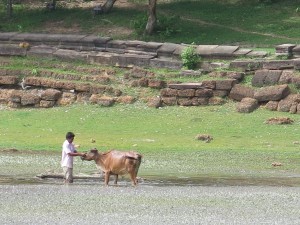 Our final blog concerning our Fusion Investment Funded study leave, ENABLE: Establishing Sustainable Research Networks and Building Learning Environments, is written with very mixed feelings in mind.
Our final blog concerning our Fusion Investment Funded study leave, ENABLE: Establishing Sustainable Research Networks and Building Learning Environments, is written with very mixed feelings in mind.
For seven months we have worked across Southeast Asia to develop and establish links and research collaborations, teaching and education partnerships and to rediscover our passion for social action as ‘professional practice’ associated with our disciplines. The work has been intense, tiring, sometimes frustrating, but always illuminating and productive. It was a wrench to leave.
The return journey began with raised anxieties, heightened a couple of weeks earlier by the awful shooting down of a Malaysia Airlines aeroplane following the same route (although by then re-routed), and exacerbated when we were separated into two distinct travelling units, Jonathan with one child and Sara with the other, because the previous university travel firm booked tickets as two separate families! To make matters worse only Jonathan and Isabel’s tickets showed up and we had to wait to secure the other tickets. We were then given seats at opposite ends of the aeroplane and had to wait again for re-seating. The flight began well enough and was fairly smooth, only briefly punctuated by a somewhat antisocial ‘ramming’ of chair in front into one of our legs with particular force by someone who thought ‘turn off your electronics’ meant send texts to your friends!
However, we landed in one piece and breathed a sigh of relief, or possibly resignation, until, as in our usual practice of each taking one of the children through immigration the UKBA officer asked Jonathan rather sternly ‘where is the child’s mother?’ and when indicating where Sara was the officer proceeded to say that children have to be seen with their mother because mother’s are in general the carers of children and if present they have to be with the child. ‘Red rags and bulls’ often appear to Jonathan in unjust situations and he, as usual, took issue with this, but whilst we all got through immigration clearance more quickly, the officer insisted that his rather warped and myopic view of British law and custom was now right. Oh dear! We wondered what had happened in the seven months we had been away and whether we were entering Gormenghast!
But, back to the project itself! Our four key objectives have been met throughout the project, with varying degrees of success and changing morphologies:
1. Establish a sustainable research network promoting social sciences and interdisciplinary research at BU:
We have made contacts with individual academics, departments and universities across Southeast Asia, notably Universiti Kebangsaan Malaysia (UKM), Universiti Sains Malaysia (USM), Universiti Malaysia Sarawak (UNIMAS), Universiti Utara Malaysia, alongside contacts with Massey University in New Zealand, Hong Kong University, The Chinese University of Hong Kong and the Myanmar Institute of Theology.
We have given names and contacts to people abroad and within BU to follow up. Research projects are being developed, publications are in train or planned for the future.
2. Develop research streams of locally specific or cross-cultural relevance:
Our research, completed with the Orang Asli as part of the Tasik Chini Research Centre, has culminated in numerous publications being submitted, developed and developing, wide dissemination across many fora, and establishing on-going research links.
3. Engage and promote educational initiatives via guest lectures/research seminars, developing joint postgraduate research supervision and educational initiatives promoting student mobility:
We have presented lectures and seminars, provided postgraduate supervision and contributed to curriculum planning and development discussions, as well as negotiated an important credit transfer scheme (although uptake has been delayed until we can find students both able and willing to go on this exciting opportunity!). Professional papers have been written and submitted.
4. Engage in discipline-specific activities in relation to social work:
a number of discipline specific activities concerning social action and development have been undertaken, including curriculum planning, assisting in education developments in Myanmar and in Malaysia in reference to the new (to be implemented) standardised Malaysian Diploma Social Work, alongside contributing to NGO development work.
Overall, during the study leave period, there has been 57 outputs, also including on-going work and connections to be completed over time. The 57 outputs included:
- 6 books (3 published)
- 14 book chapters (11 published or in press)
- 12 peer reviewed papers (9 published or in press)
- 3 professional papers
- 1 book review
- 16 conference presentations/open lectures etc.
- 10 blogs
- 6 media presentations
During our time away we have worked across five countries: Malaysia, Hong Kong SAR, Australia, Myanmar and Cambodia in order to carry out our research or present it, along with capacity-building missions for professional, social work training. We have undertaken respectively between 24 to 28 flights (trying, when one of us dislikes flying) and stayed in some extraordinarily interesting as well as very grim places during our fieldwork, resulting in abuse from miscellaneous assortments of blood-sucking insects (outsized mosquitoes, the usual bed bugs and fever-inducing leeches) bedding down with us or boisterously noisy lizards, both small and decidedly large, showering us with ordure from above.
One of us was joyfully returning ‘home’ to pioneering fieldwork in Southeast Asia and the other was equally rapturous to be introduced to it. We have developed a new appreciation of the diversity of international driving styles when finding it not unusual to be driven by taxi in the wrong direction through chaotic Yangon in the middle of two long lines of equally erratic cars heading in the right direction – towards us. Above all, we remember the various wonderfully funny, kind, clever, intriguing and endlessly good-natured people we me: all our participants, our various helpers, interpreters, drivers, guides and advisors, the academic staff and students who welcomed us so warmly, the inspiring NGO workers and service users; not forgetting the local café owner in Penang, who wept when we left before running to get her camera for group photos to remember us by.
Also, we will always remember just how much our children, Isabel and Milly grew and developed in stature (in all ways possible): learning the research process, engaging with children amongst the village communities, and themselves collecting valuable data and compiling magnificent school projects on their adventures and experiences. The children put up with a good deal with great fortitude, willingness and humour (or when the going got tough – heavy irony), easily comprehending the importance of the work undertaken; albeit, as 10 year-old Milly gravely commented in her write-up later, ‘fieldwork has its dark side’! Indeed, so impressed were we with them that they will be contributing their experiences and acting as co-authors to the forthcoming book on the Tasik Chini area.
Alongside the outputs, the work is now to capitalise on the study leave by the development and submission of funded research projects. Currently, these include gendered rituals in professional working, problematizing research ethics and learning disabilities, understanding religion as resistance, and gender in higher education.
The study leave represented a life-giving oasis, somewhere to wash and attend to our own sacred cattle as in the photo from Cambodia, and we gratefully acknowledge the help and supported afforded us by Bournemouth University and our two main host universities in Malaysia (UKM and USM). We would encourage other academic staff to apply for study leave and we think that the productivity of our period of study leave indicates how important this can be to both individual academics but also to the greater good of Bournemouth University.
Jonathan Parker & Sara Ashencaen Crabtree
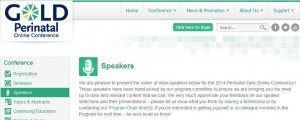

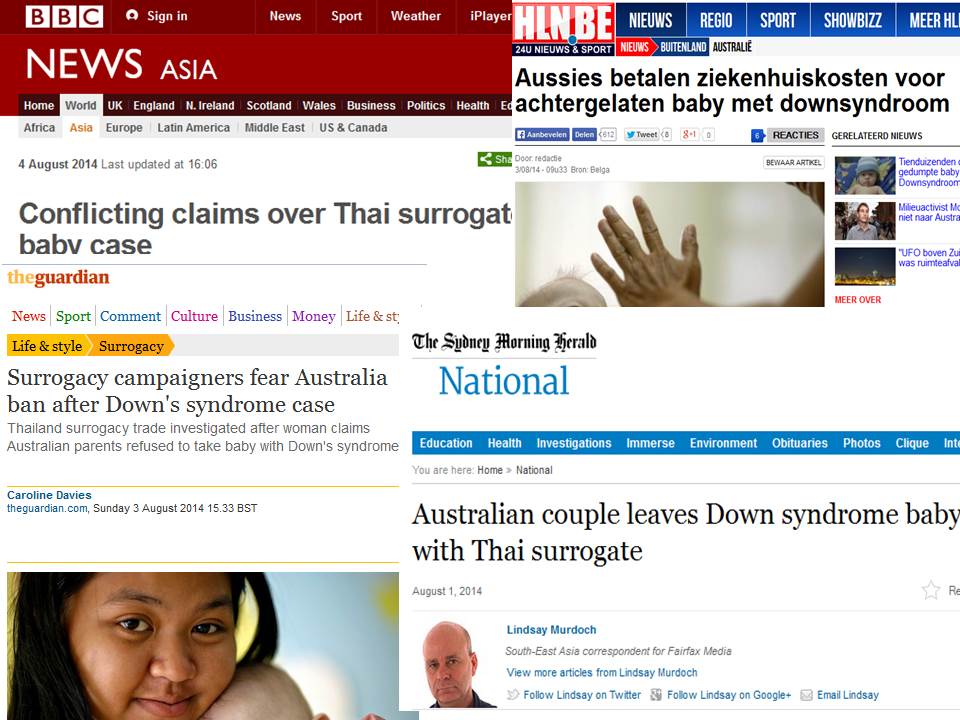
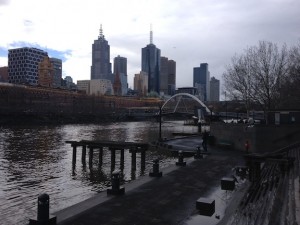

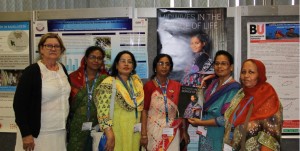

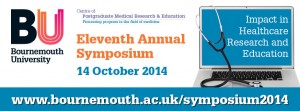
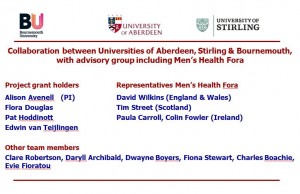
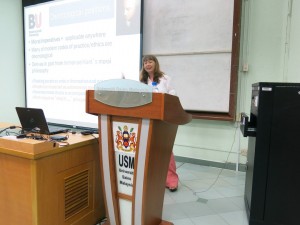
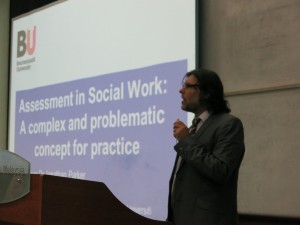
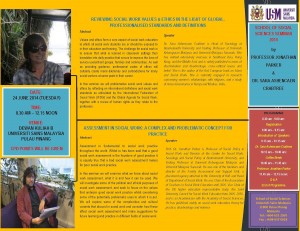
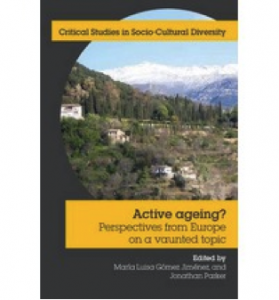



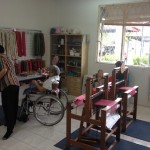
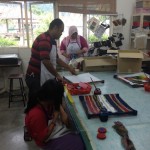

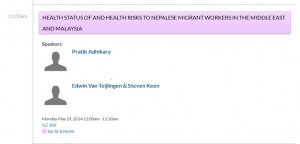
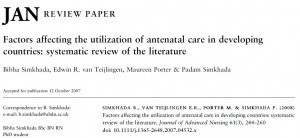
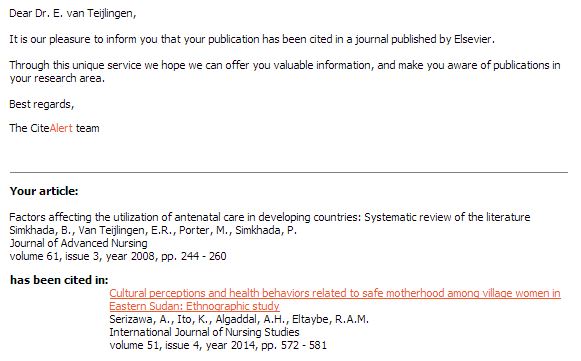



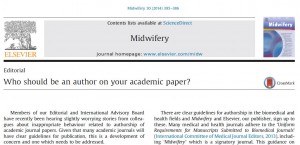











 Fourth INRC Symposium: From Clinical Applications to Neuro-Inspired Computation
Fourth INRC Symposium: From Clinical Applications to Neuro-Inspired Computation Writing policy briefs
Writing policy briefs Upholding Excellence: The Concordat to Support Research Integrity
Upholding Excellence: The Concordat to Support Research Integrity Today’s Documentation Will Serve Tomorrow’s Justice
Today’s Documentation Will Serve Tomorrow’s Justice Up2U: New BU academic publication
Up2U: New BU academic publication New BU midwifery paper
New BU midwifery paper ECR Funding Open Call: Research Culture & Community Grant – Application Deadline Friday 12 December
ECR Funding Open Call: Research Culture & Community Grant – Application Deadline Friday 12 December MSCA Postdoctoral Fellowships 2025 Call
MSCA Postdoctoral Fellowships 2025 Call ERC Advanced Grant 2025 Webinar
ERC Advanced Grant 2025 Webinar Horizon Europe Work Programme 2025 Published
Horizon Europe Work Programme 2025 Published Horizon Europe 2025 Work Programme pre-Published
Horizon Europe 2025 Work Programme pre-Published Update on UKRO services
Update on UKRO services European research project exploring use of ‘virtual twins’ to better manage metabolic associated fatty liver disease
European research project exploring use of ‘virtual twins’ to better manage metabolic associated fatty liver disease